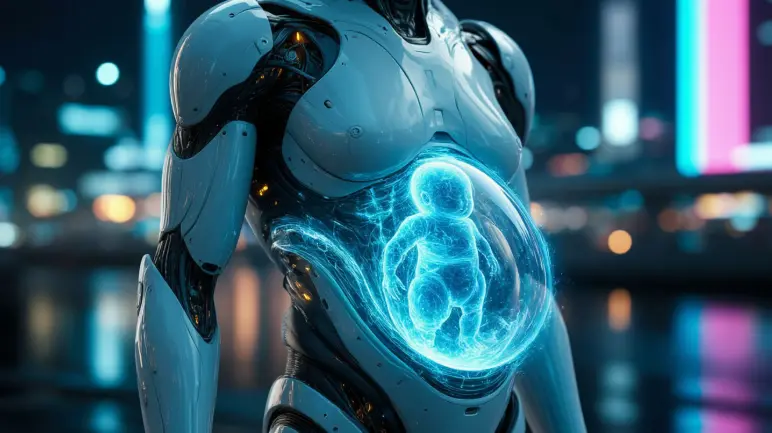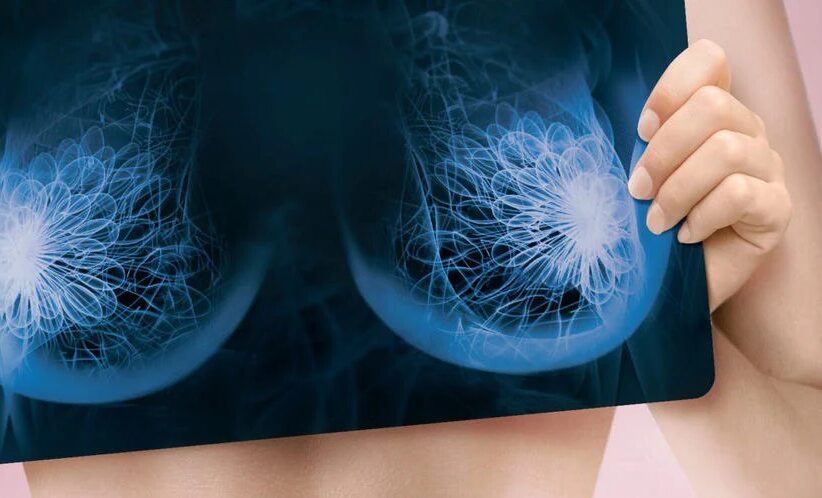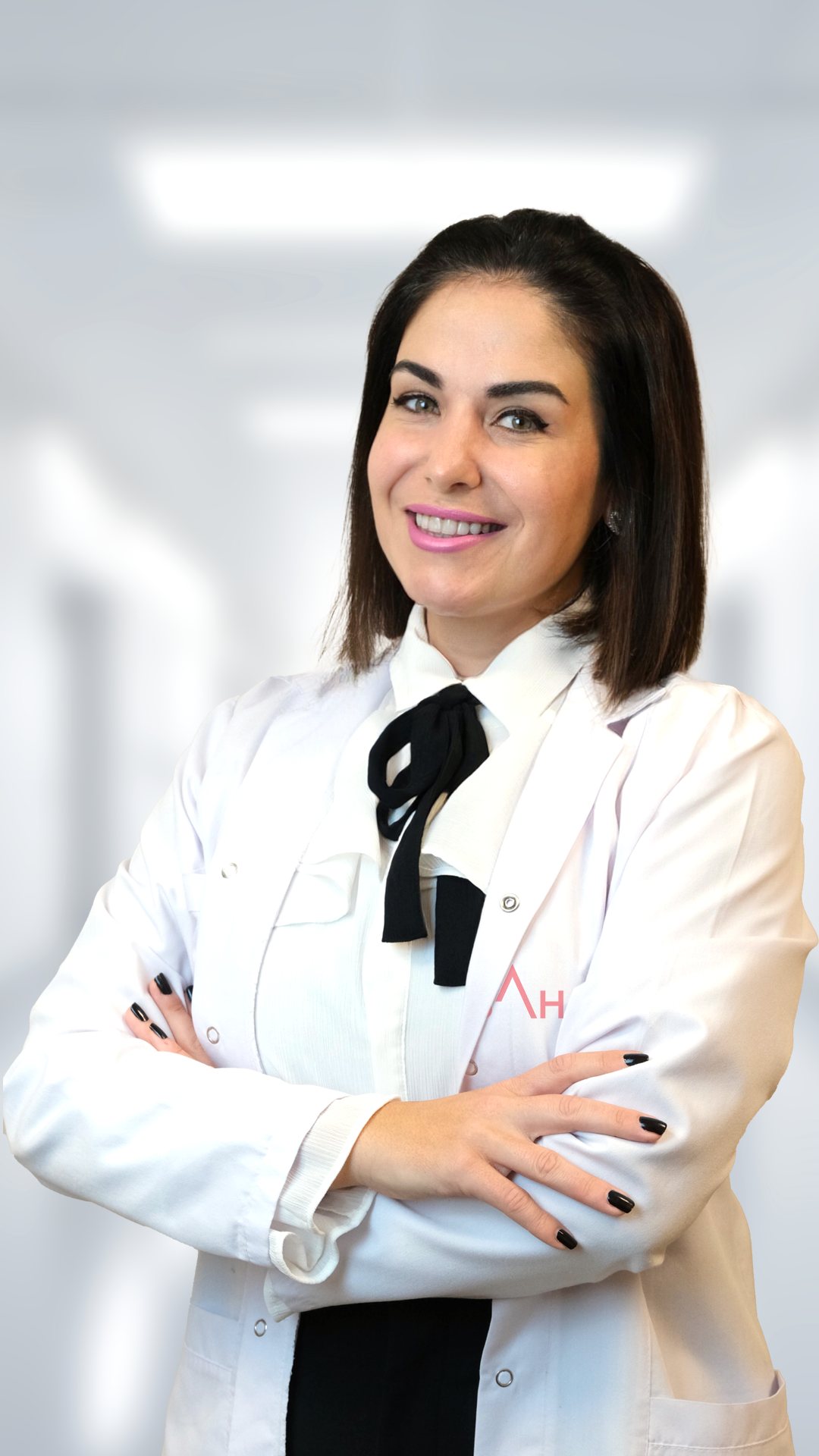-
 News
Psychologists and psychiatrists are sounding the alarm: new illnesses associated with communication with AI have emerged
News
Psychologists and psychiatrists are sounding the alarm: new illnesses associated with communication with AI have emerged
-
 News
WHO reports on the prevalence of physical punishment of children and its harm to health
News
WHO reports on the prevalence of physical punishment of children and its harm to health
-
 News
China is preparing to launch the manufacturing of humanoid robots for surrogate motherhood
News
China is preparing to launch the manufacturing of humanoid robots for surrogate motherhood
-
 News
Contraception becomes gender-equal: birth control pills for men have been developed
News
Contraception becomes gender-equal: birth control pills for men have been developed
-
 News
Respiratory viruses can awaken dormant breast cancer cells
News
Respiratory viruses can awaken dormant breast cancer cells
All news
Uterine myoma treatment in Turkey
Uterus myoma — most common uterus neoplasm.
Synonyms: leiomyoma, fibroids.
Reasons: mutations in genetic cells and chromosomes, hormonal imbalances and urinary tract infections.
Uterus myoma may be asymptomatic or cause characteristic manifestations. Often, the disease doesn’t cause any symptoms and can be detected during a preventive gynecological examination. Therefore, it’s important to visit an experienced gynecologist at least once a year.
Qualified doctors of Turkish clinics help patients in solving issues:
- Difficulties with conception and bearing associated with myomatous nodes;
- Elimination of any manifestations of the disease;
- Improving the quality of life.
MedTour patients recommend clinics for the treatment of uterine myoma in Turkey:
Doctors for the treatment of uterine myoma in Turkey
Patient reviews
Frequently Asked Questions
Patients choose a Turkish clinic for the following criteria:
- All clinics offered by the MedTour platform are JCI-accredited;
- Many medical centers have up to 6 different accreditations and certifications;
- Highly specialized doctors with extensive experience in medical practice;
- High rates of recovery;
- Doctors use international standards of therapy;
- Availability of robotic technology for surgical interventions;
- Modern equipment and high-precision diagnostic devices;
- The clinics are focused on foreign patients.
The choice of a medical institution is based on the following parameters:
- Experience and qualifications of the clinic’s doctors;
- Clinic rating;
- Range of medical services;
- Medical center accreditation;
- Use of modern equipment and world treatment standards;
- Clinic patient reviews.
- Medipol University Hospital — a private multidisciplinary clinic with 209 medical institutions. The center is focused on foreign patients. There, translators of more than 15 common languages of the world work around the clock;
- Anadolu Medical Center — an accredited and certified center of American and European standards. Doctors perform myomectomy using the Da Vinci machine with the EndoWrist system;
- LIV Hospitals — has 4 different accreditations. Equipped with the latest technology. LIV Hospitals employ highly qualified doctors, experienced and caring medical staff. 4 medical centers of the network are located in three cities of Turkey;
- Memorial Hospitals — specializes in all branches of medicine. People from more than 90 countries of the world come to the doctors working in Memorial Hospitals for treatment. Clinic buildings comply with environmental and safety standards.
- Professor Ahmet Arda Lembet — an obstetrician-gynecologist and perinatologist with over 20 years of experience. Works in LIV Hospitals. Specializes in diseases of pregnant women, pathological childbirth, intrauterine surgery, etc. He underwent medical training in the United States. Author of scientific papers and practicing speaker at international symposia. Member of 4 associations and international communities;
- Professor Aygul Demirol — an obstetrician-gynecologist with over 20 years of experience. Practitioner at the Memorial Hospital. Specialist in artificial insemination, genetics and andrology. She is an active member of 5 different organizations;
- Denise Gekalp Kaya — an obstetrician-gynecologist and endoscopic surgeon with over 15 years of medical experience. Leading specialist of LIV Hospitals. An expert in removal of myomatic nodes and cysts, treatment of endometriosis, as well as the correction of various gynecological defects. Member of 4 Turkish associations;
- Aishe Akbulut — a leading obstetrician-gynecologist at the Hisar Hospital Intercontinental. She has over 15 years of experience. Participates in medical organizations. Practicing surgeon (laparoscopy, hysteroscopy). Specialist in myomectomy, polypectomy, etc.
Consultation of an obstetrician-gynecologist on uterine fibroids in Turkish clinics ranges from $ 110 to $ 140.
The cost of medical services depends on: the accreditation of the clinic, the qualifications of the attending doctor, the range of prescribed examinations, the chosen treatment tactics.
Prices for diagnostic procedures and some treatment options for uterine fibroids in Turkey:
- Diagnostics — $2.055;
- Embolization of the uterine arteries — $26,160;
- Hysterectomy — $12,130;
- Myomectomy — $8.530;
- Myomectomy by Da Vinci robot — $13,600.
Fill out an application on the MedTour platform. The coordinating doctor will call you and answer all your questions.
The coordinating doctor will guide you on prices and help you choose a clinic for the diagnosis and treatment of uterine fibroids.
How is uterine myoma diagnosed in Turkish clinics
In Turkey, uterine fibroids are determined by a qualified doctor with gynecological and ultrasound.
The modern equipment of Turkish clinics allows ultrasound examination simultaneously with echohysterography. This method is used by leading doctors of clinics to identify the number, location and size of fibroids.
If necessary, the doctor will prescribe an additional study: MRI or CT to determine the tactics of treating fibroids.
- Ultrasound: the main method for examining uterine fibroids. The examination is safe for the body and has practically no contraindications.
- Echohysterography: a diagnostic method based on the introduction of contrast into the uterine cavity and fallopian tubes. Diagnostics is carried out in 3D or 4D mode.
- MRI: shows the type and location of myoms.
Treatment of uterine myoma in Turkish clinics
When choosing a treatment strategy, the doctor will be based on the following criteria:
- Uterus myoma is asymptomatic or causes manifestations;
- The size, location and number of myomatous nodes;
- Influence of fibroids on fertility;
- A woman’s desire to have children.
Treatment options:
- Wait-and-see tactics;
- Medication;
- Surgical:
- Myomectomy (removal of the myomatous node);
- Hysterectomy (amputation of the uterus);
- Uterine artery embolization (UAE);
- Ultrasonic ablation.
- Wait-and-see tactics:
If the fibroid doesn’t cause any complaints, it can be observed for a while. Up to 10% of uterine fibroids regress within 6 months — 3 years in the childbearing period. More than 50% of fibroids decrease during menopause.
- Medication (hormonal) treatment:
Taking hormonal contraceptives or hormones that inhibit the formation of estrogen (GnRH analogs — gonadotropin-releasing hormone).
- Myomectomy:
If possible, the doctor chooses an organ-preserving operation. With myomectomy, the doctor operates on the fibroid without removing the uterus. At the same time, the ability to conceive and give birth is preserved.
There are different methods of myomectomy: hysteroscopic, laparoscopic, and laparotomy.
- Hysterectomy:
The physician amputates the uterus in whole or in part, with or without appendages. Hysteroscopy can be performed through the vagina, laparoscopically, laparotomically or with the Da Vinci robot.
The average duration of rehabilitation after removal of the uterus is approximately 6 weeks.
- Embolization of the uterine arteries:
An innovative and safe method of treating uterine fibroids. UAE isn’t a surgical intervention. The effectiveness of the procedure reaches more than 95%.
The blood vessels that supply the fibroids are closed. As a result, myomatous nodes die, shrink and turn into connective tissue. At the same time, all symptoms of the disease disappear.
UAE advantages:
- The average duration of the recovery period is 5-7 days;
- The procedure takes several minutes;
- Relapses occur in less than 1% of cases;
- There is no negative impact on the female system, i.e. after UAE, you can become pregnant and give birth;
- There will be no cuts, scars, blood loss.
UAE risks:
- Temporary or permanent absence of menstruation (4%);
- Damage to uterine tissue (less than 1%);
- Inflammation of the uterus (less than 2%).
Ultrasound ablation:
An innovative non-surgical type of treatment. The doctor performs an MRI-guided ultrasound ablation procedure to identify the location of the fibroid and direct high-intensity ultrasound waves to the center of the fibroid. The fibroid is heated and destroyed by strong ultrasonic waves.
Published:
Updated:








I had in vitro fertilization in this center. They did it well. I am really happy to be able to have a kid now! Thanks to MedTour for organizing the whole treatment! It was even not that expensive as I thought.